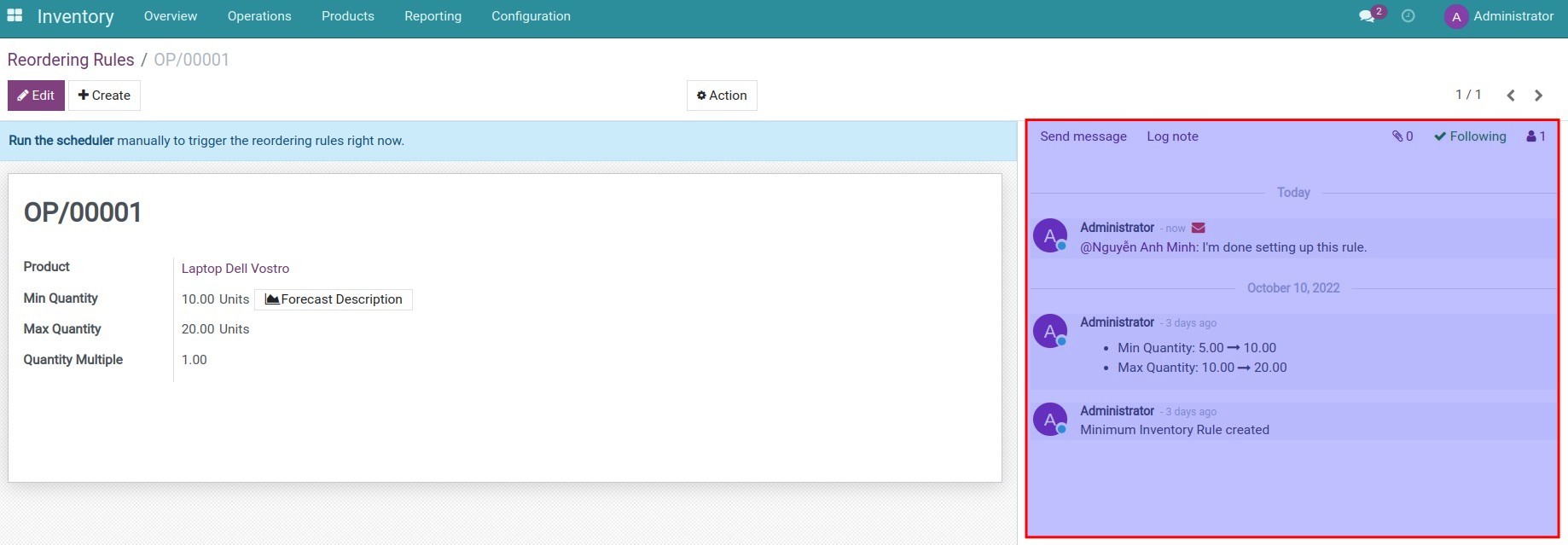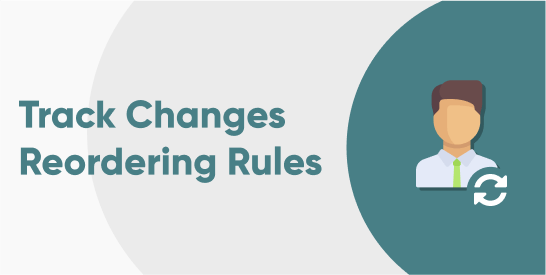Demo video: Track Changes in Reordering Rules
What it does
- Modification of Reordering Rules (also known as min./max. stock rules) will affect your supply chain which may harm your business. Tracking changes (who did it, what the old value was, etc) could protect your business from unexpected changes.
- Normally, users with Admin access can modify the Reordering Rules. However, by default, these changes (who made it, how old the rule was, etc) are not logged. This module helps to log all changes made to Reordering Rules in the Chatter area.
Key Features
- Create the Chatter area in the Reordering Rule section.
- Log all changes made to the Reordering Rule in the Chatter area: who changed it, the old - new value of the rule, when it was changed.
- Allows users to communicate in the Chatter area.
Supported Editions
- Community Edition
- Enterprise Edition
Installation
- Navigate to Apps.
- Search with the keyword viin_mail_thread_stock.
- Press Install.
How to use
Step 1: Create replenishment rule.
Step 2: Navigate to Inventory > Configuration > Reordering Rules, press Create.

Step 3: Check detailed information, and historical changes on the reordering rule.
On the reordering rule list, press the Setup button on each reordering rule line to see its detail, including the chatter section that record the historical changes and the internal conversations.


This software and associated files (the "Software") may only be
used
(executed, modified, executed after modifications) if you have
purchased a
valid license from the authors, typically via Odoo Apps,
or if you
have
received a written agreement from the authors of the
Software (see the
COPYRIGHT file).
You may develop Odoo modules that use the Software as a library
(typically
by depending on it, importing it and using its
resources), but
without
copying any source code or material from the
Software. You may distribute
those modules under the license of your
choice, provided that this
license
is compatible with the terms of
the Odoo Proprietary License (For
example:
LGPL, MIT, or proprietary
licenses similar to this one).
It is forbidden to publish, distribute, sublicense, or sell
copies of the
Software or modified copies of the Software.
The above copyright notice and this permission notice must be
included in
all copies or substantial portions of the Software.
THE SOFTWARE IS PROVIDED "AS IS", WITHOUT WARRANTY OF ANY KIND,
EXPRESS OR
IMPLIED, INCLUDING BUT NOT LIMITED TO THE WARRANTIES OF
MERCHANTABILITY,
FITNESS FOR A PARTICULAR PURPOSE AND
NONINFRINGEMENT. IN NO EVENT
SHALL THE
AUTHORS OR COPYRIGHT HOLDERS
BE LIABLE FOR ANY CLAIM, DAMAGES OR OTHER
LIABILITY, WHETHER IN AN
ACTION OF CONTRACT, TORT OR OTHERWISE,
ARISING
FROM, OUT OF OR IN
CONNECTION WITH THE SOFTWARE OR THE USE OR OTHER
DEALINGS IN THE
SOFTWARE.



